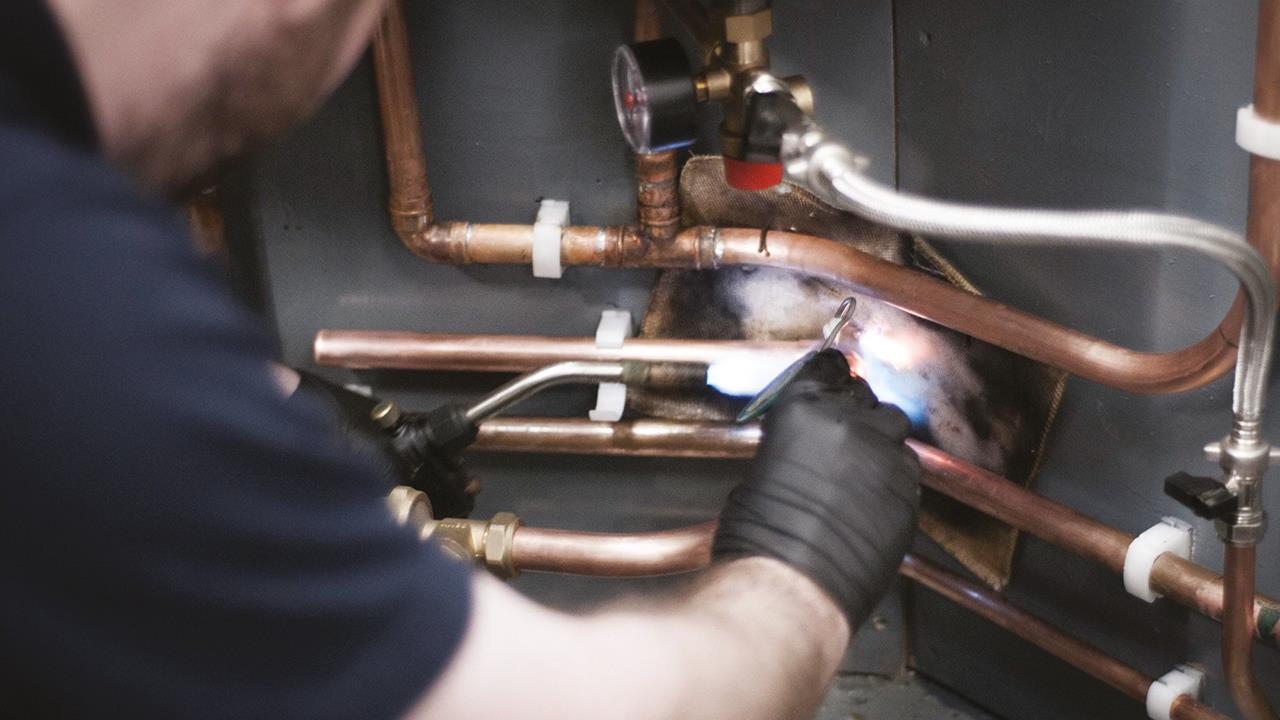

Mark McShane, Managing Director at Skills Training Group, takes a look at what the future may hold for heating installers as we work through the pandemic towards a net-zero future.
To reach net-zero carbon emissions by 2050, we need to reduce our domestic heating emissions by 95% – from 2,745kg to 138kg CO2 per household. Currently, over 80% of UK households heat their homes with natural gas and this must change if we are to get anywhere near carbon neutral.
The solution is multifaceted, with energy efficiency and low carbon heating technologies both playing a key role. If we play our cards right, investment in green recovery now could also help to lift us out of the economic situation created by the COVID-19 pandemic; creating jobs, training schemes, and apprenticeships.
Far from being redundant, as we move away from the gas boilers of old, heating installers will be central to the green revolution, building on their skills, knowledge, and experience to facilitate the changes required.
Green recovery
The government has taken several steps towards greener homes over the past few years – we’ve had the infamous Green Deal initiative, the Renewable Heat Incentive, Boiler Plus, and many more. Despite this, we are yet to make a significant dent in the net-zero target.
The latest incarnation is the Green Homes Grant, which will entitle homeowners to apply for vouchers up to £10,000 to cover two-thirds of the cost of energy efficiency improvements, including wall and roof insulation, heating controls, heat pumps, and solar thermal. The scheme will run from September 2020 to the end of March 2022, with £2 billion set aside. However, we will need a more long-term commitment if the scheme is to have the desired impact.
Here in Scotland, where our training centres are based, Home Energy Efficiency Programmes for Scotland has provided grants, interest-free loans, assessments, advice, and support to Scottish homeowners since it launched in 2013.
According to recent research by the New Economics Foundation, a large-scale retrofit programme over the next four years could see 8.7 million homes improved, create half a million new jobs, and reduce household carbon emissions by 21%; tackling both the climate crisis and the economic shock caused by the COVID-19 pandemic.
While natural gas is being ruled out as a heating option for newbuilds from 2025, many people are still installing new, highly efficient gas boilers, privately and as part of government-backed schemes. In the future, existing gas boilers will be part of new low-carbon systems, so they are still a sound investment for many.
Hybrid heat pumps
An air source heat pump can be used alongside a traditional gas or oil boiler, automatically switching between each system depending on use and demand.
It is the logical next step towards decarbonising domestic heat and some of the big boiler manufacturers offer hybrid heat pump systems. This hybrid solution has been trialled in Bridgend, South Wales, to positive results.
Hydrogen
There has been a lot of talk about hydrogen over the past couple of years, with the Committee on Climate Change calling it a credible option in its 2018 report. The advantage for consumers is that they would continue to use existing infrastructure and, on the face of it, heat their homes in the same way. Worcester Bosch launched its ‘hydrogen-ready’ prototype earlier this year, which works in a similar way to a traditional gas boiler – a bonus for installers.
A changing sector
The building services sector is going through an exciting period of change; it was before the pandemic hit, but demand for green heating solutions has only been exacerbated by the health crisis and subsequent lockdown.
Change is happening and, although for some it is tempting to batten down the hatches during such a volatile time, heating installers need to look ahead to the future and seize opportunities for growth.
Whether you want to plug skills gaps in your workforce, offer the latest technologies, or expand into a new market, upskilling is always a good investment in a developing sector, allowing your business to stand out among its competitors.
If you'd like to keep up-to-date with the latest developments in the heating and plumbing industry, why not subscribe to our weekly newsletters? Just click the button below and you can ensure all the latest industry news and new product information lands in your inbox every week.